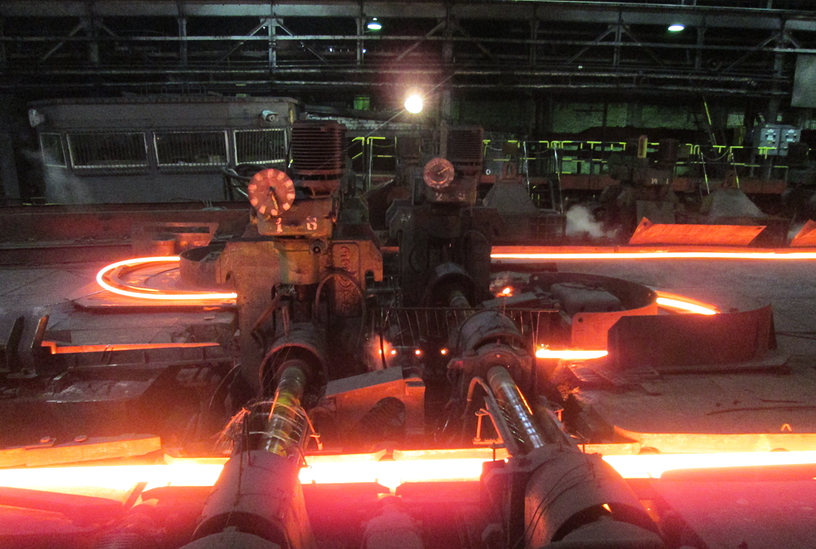More than 550 workers are already employed back at the plant, where one rolling mill is already putting out steel bars for export to Algeria.
One can’t help but feel the heat from the 700-degree temperatures inside the rolling mill and the freshly rolled bars. Jānis Mandeiks, a line supervisor told Kurzeme Regional Television the product is ready in minutes, but takes about 20 minutes to cool.
“Don’t assume you can touch the armature just because it’s black and no longer glowing red. It’s still hot. Take it in your hands and you’ll smell burned flesh. These have been cooled to 300 degrees,” said Mandeiks.
So far 15,000 units have already been rolled out. The raw materials came from Belarus and St. Petersburg in Russia and are destined for Algeria.
KVV LM board member Igor Kovalenko remarked that the company wants to earn profits. “Two years this asset lay idle, but it’s no warehouse, it’s a living organism. We will find the financial and human resources to ensure the level this company deserves,” he said.
The enterprise will relaunch operations only gradually. The next step is to open the second rolling mill, to employ already 750 people. By April another electrical melting facility may be put back into operation. The plant may go into automotive parts making.
Economics Minister Dana Reizniece-Ozola pledged her support to the significant project’s development. “We’ll work so there are no overpayments for electricity. We’ll offer EU funds if there’s serious intent to develop new products. It pleases me to speak to the leaders of the company and hear such talk of the future. That which changes can persevere,” she said.
Meanwhile the insolvency proceedings on Liepājas metalurgs proceed until all of the court cases have ended and properties auctioned off. The process has been extended until August of this year.






























